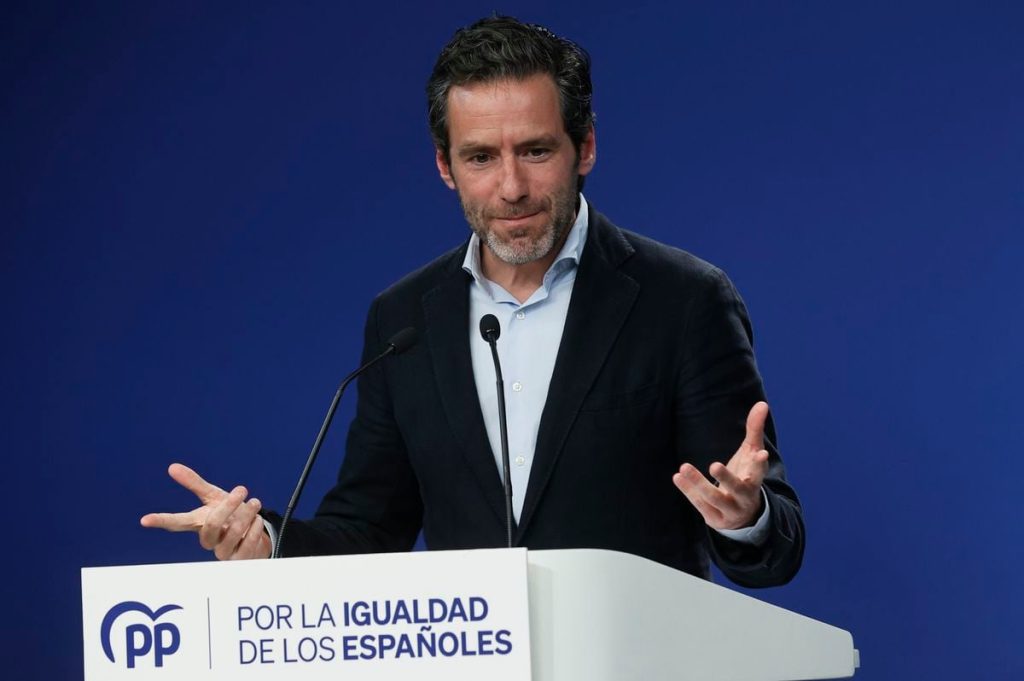The noise surrounding the Popular Party (PP) on Monday due to the campaign, which in the opinion of some right-wing sectors, has been excessively soft in the Basque Country. Hardline members of the party criticize the party’s satisfaction with the conservative results in the Basque elections, where they only gained one seat (in Álava), while Bildu tied in seats with the PNV. Former president of the Community of Madrid, Esperanza Aguirre, stated that there is nothing to be happy about as the political project of ETA has won. She criticized the lack of cultural battle from some members of the party and pointed out that the whitewashing of Bildu began during Zapatero’s government and was not stopped by the PP during Rajoy’s term. Another member of the party criticized the “very flat campaign, marked by fear of messing up” by the candidate Javier de Andrés, who avoided mentioning ETA to prevent a transfer of votes from the PP to the PNV.
The candidate for the Popular Party chose to focus on the deterioration of public services in his campaign strategy, even when the candidate of the leftist abertzale party, Pello Otxandiano, struggled to define ETA as a terrorist organization. Some members of the PP felt that De Andrés should have insisted more on the ethical discourse, especially after the statements made by Otxandiano. Despite criticism, the candidate remained firm in his strategy, which was also supported by the rest of the party, including regional leaders who participated in the campaign. The risk of the strategy became apparent after the election results, with the PP only gaining one more seat, and Vox maintaining its single seat, both still considered irrelevant in Euskadi. Criticisms of the party’s campaign were highlighted by various conservative newspapers and commentators, reflecting concerns within the right-wing sector about the results in the Basque Country.
The leadership of the PP chose to avoid self-criticism regarding the outcome of the Basque elections, attributing the party’s lack of relevance in Euskadi to historical reasons and not acknowledging any mistakes. The party spokesperson, Borja Sémper, defended the campaign, stating that the party had stopped a twenty-year trend of decline in regional elections and grown by 40,000 votes. Sémper rejected claims that the PP campaign was technocratic, and although he admitted that the results were not sufficient, he argued that the party’s project is long-term and should not be judged solely on one election. Despite failing to block Vox, one of their electoral objectives in the Basque Country, the party did not engage in self-criticism and instead shifted blame onto the PSOE, accusing them of inflating Bildu through their agreements.
The PP’s failure to stop Vox was seen as inevitable, with the party’s focus on blaming the PSOE for the rise of Bildu. The party accused Pedro Sánchez of creating more independentists through his actions and preferred to redirect attention towards the socialists to avoid further controversy within the right-wing sector. The party continues to defend its campaign strategy, despite internal and external criticisms, emphasizing the need for a long-term perspective and focusing on issues that matter to the citizens. The aftermath of the Basque elections has sparked debate and reflection within the PP, as they navigate the political landscape and strive to position themselves effectively in the face of evolving challenges and opposition.


